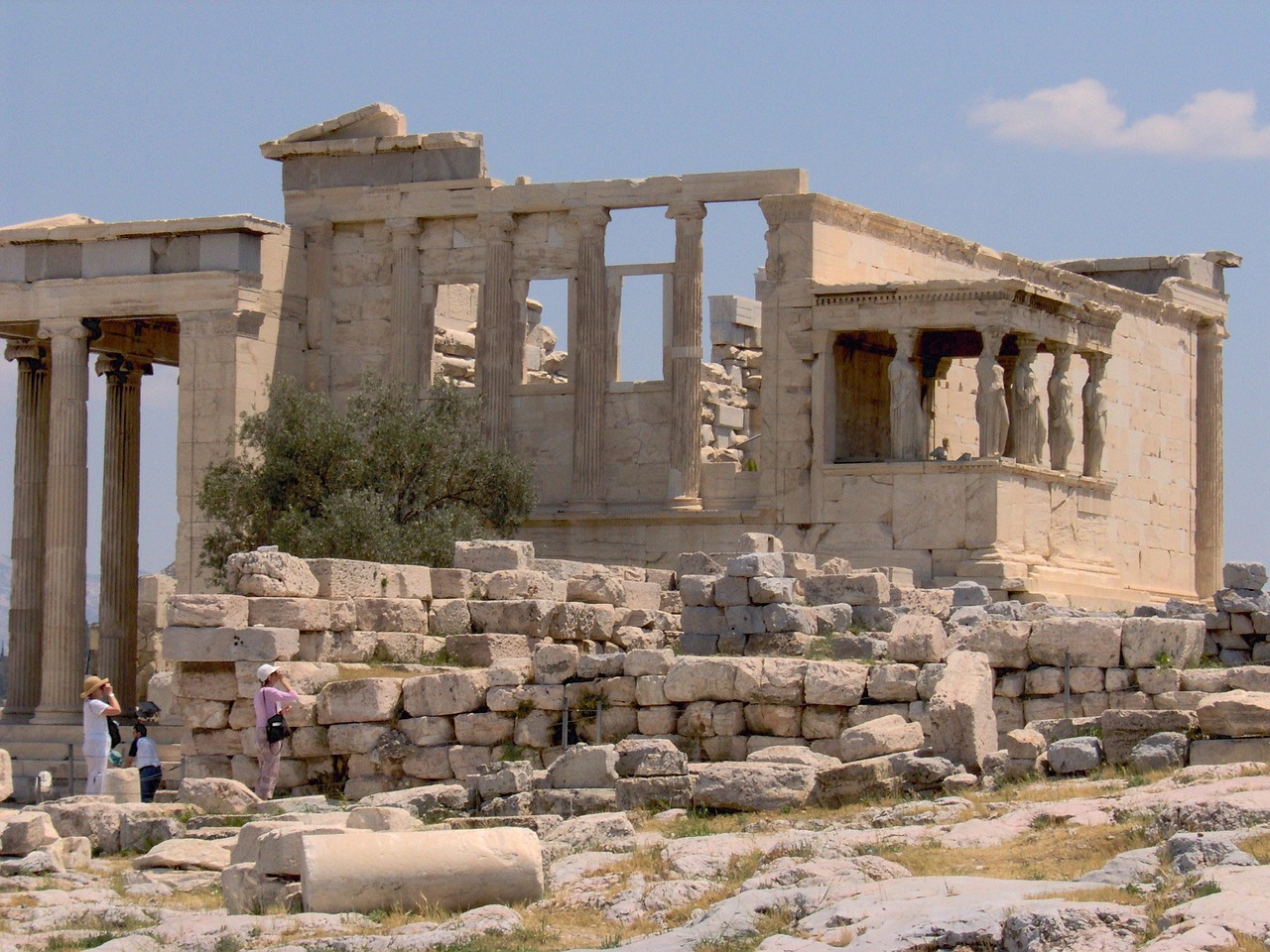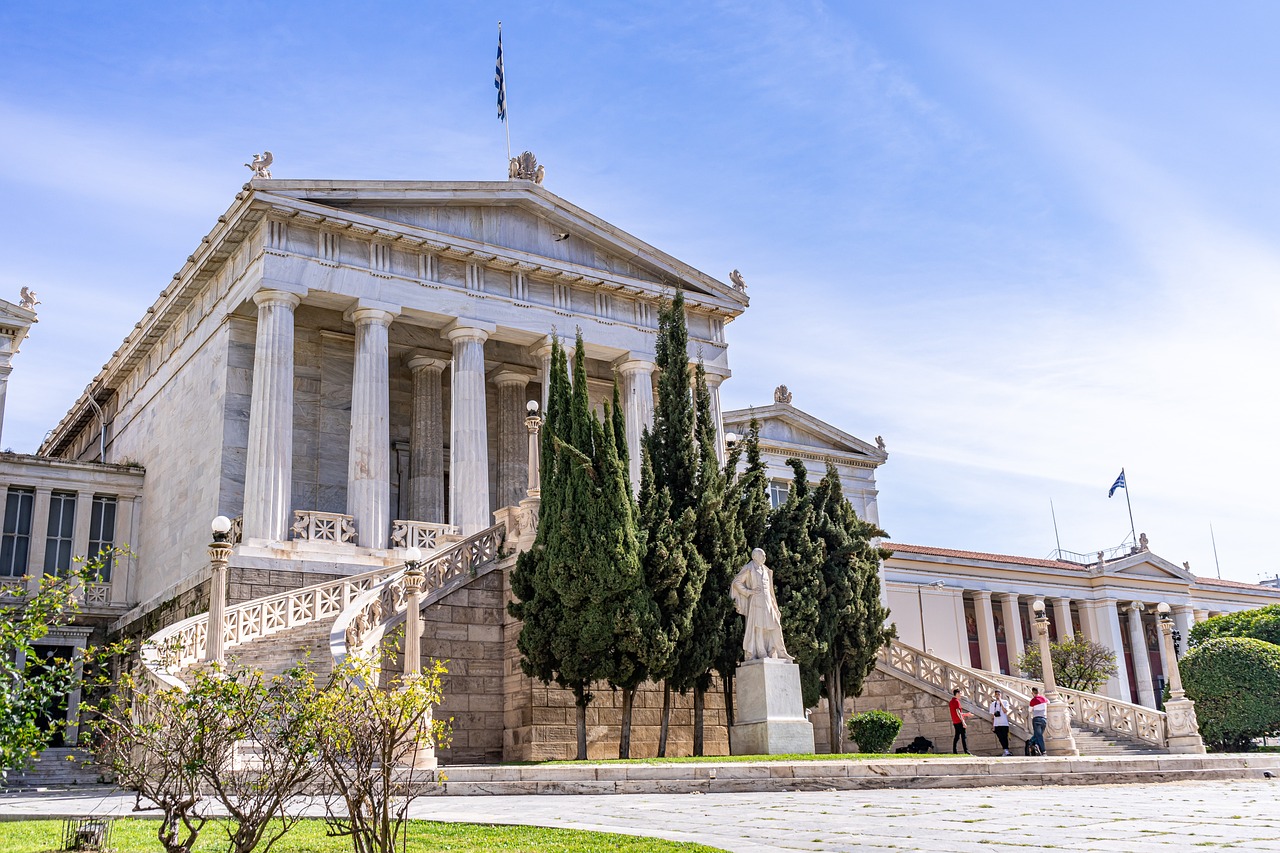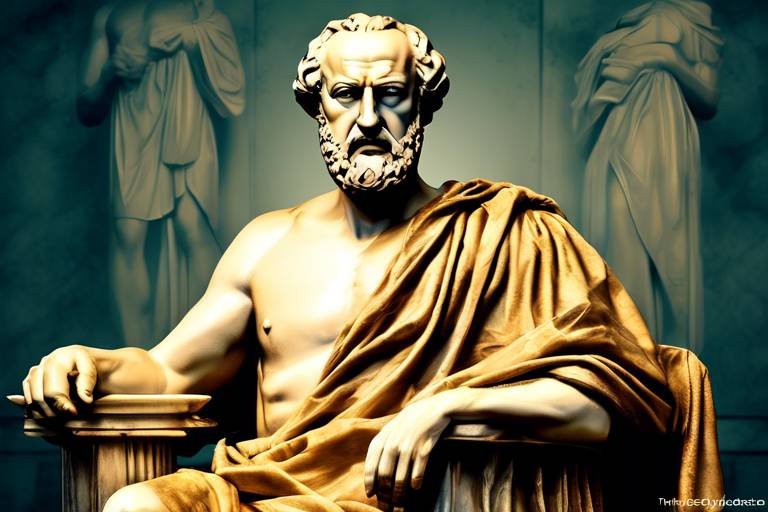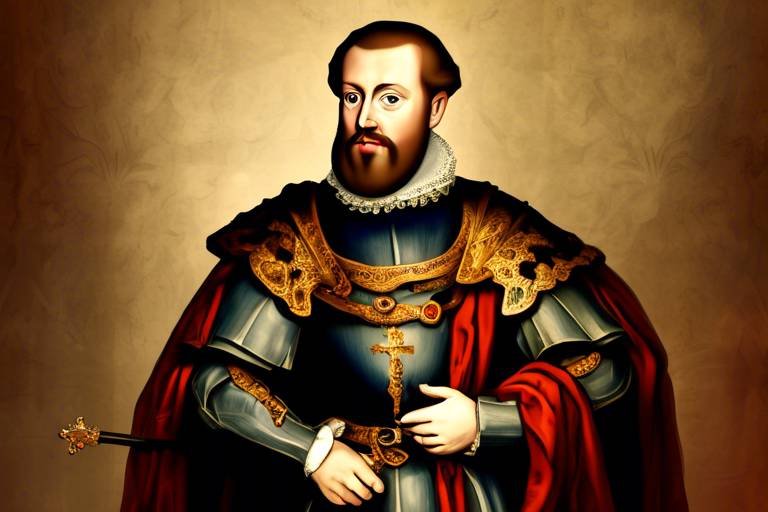Pericles: The Age of Athenian Democracy
Pericles, a towering figure in ancient Greece, played a pivotal role in shaping the landscape of Athenian democracy during the 5th century BC. His leadership ushered in a period of unprecedented growth and cultural achievement, leaving an indelible mark on the history of Athens.
From his early years, Pericles displayed exceptional promise, honing his skills through education and experiences that would later define his political career. His upbringing instilled in him a deep sense of civic duty and a passion for public service, laying the groundwork for his future endeavors.
As Pericles ascended to power in Athenian politics, his strategic acumen and charisma propelled him to the forefront of the city-state's leadership. Through astute maneuvering and alliances, he solidified his position, becoming a central figure in shaping the destiny of Athens.
One of Pericles' most significant achievements was the expansion of Athens' influence, culminating in the establishment of the Athenian Empire. Through a combination of military prowess and diplomatic finesse, he extended the city-state's reach across the Aegean, asserting its dominance in the region.
Not content with political triumphs alone, Pericles also championed the arts, architecture, and intellectual pursuits, fostering a vibrant cultural renaissance known as the Golden Age of Athens. His patronage of creativity and innovation elevated Athens to unparalleled heights of cultural sophistication.
However, Pericles' leadership was tested during the tumultuous period of the Peloponnesian War, as Athens clashed with Sparta in a protracted conflict that strained the city-state's resources and resolve. Despite facing formidable challenges, Pericles remained a steadfast leader, guiding Athens through the trials of war.
The legacy of Pericles endures to this day, with his influence reverberating through the annals of Athenian history. His contributions to democracy, politics, and culture have left an enduring imprint on the fabric of Athenian society, shaping its trajectory for generations to come.
One of the defining moments of Pericles' legacy is his Funeral Oration, a stirring speech delivered in honor of fallen soldiers that encapsulated the core values of democracy and patriotism. This iconic address stands as a testament to Pericles' oratorical prowess and his unwavering commitment to the ideals of Athenian democracy.
As Pericles' power waned in the twilight of his life, his eventual decline and passing marked a turning point for Athenian democracy. The aftermath of his reign brought both challenges and opportunities for the city-state, as it grappled with the repercussions of his absence.

Early Life and Education
Exploring the life and impact of Pericles, a prominent statesman in ancient Greece, and the flourishing of Athenian democracy during his leadership in the 5th century BC.
Pericles, born in Athens in 495 BC, was raised in a politically active family. His father, Xanthippus, was a renowned general, and his mother, Agariste, came from a noble background. From a young age, Pericles was exposed to the intricacies of Athenian politics and governance, shaping his future aspirations.
His education was diverse, encompassing not only traditional subjects like mathematics and rhetoric but also philosophy and oratory skills. Pericles studied under the tutelage of eminent philosophers and orators, honing his ability to persuade and lead with eloquence.
As he matured, Pericles traveled extensively, immersing himself in different cultures and political systems. These experiences broadened his perspective and influenced his approach to governance, emphasizing the importance of democracy and civic engagement.
Q: What was Pericles' role in the development of Athenian democracy?
A: Pericles played a crucial role in strengthening and expanding Athenian democracy by advocating for equal participation in government, promoting freedom of speech, and instituting reforms that empowered the common citizens.
Q: How did Pericles contribute to the cultural and intellectual advancement of Athens?
A: Pericles supported artists, architects, and thinkers, fostering a vibrant cultural scene in Athens. His patronage of the arts led to the creation of magnificent monuments, such as the Parthenon, and encouraged intellectual pursuits that defined the Golden Age of Athens.
Q: What was the significance of Pericles' Funeral Oration?
A: Pericles' Funeral Oration, delivered during the Peloponnesian War, celebrated the virtues of Athenian democracy, honored fallen soldiers, and inspired patriotism among the citizens. The speech encapsulated the ideals of democracy and solidarity that defined Athenian society.

Political Ascendancy
Exploring the life and impact of Pericles, a prominent statesman in ancient Greece, and the flourishing of Athenian democracy during his leadership in the 5th century BC.
Pericles' rise to power in Athenian politics was a remarkable journey marked by strategic maneuvers and astute leadership. Known for his charisma and oratory skills, Pericles swiftly established himself as a key figure within the city-state of Athens. His ability to navigate the complex political landscape and garner widespread support among the populace solidified his influential position.
Pericles' political ascendancy was not merely a result of luck but a testament to his shrewd decision-making and vision for Athens. By forming alliances with influential individuals and implementing policies that resonated with the citizens, he effectively consolidated his power base. His leadership style was characterized by a blend of pragmatism and idealism, striking a balance between practical governance and visionary initiatives.
Furthermore, Pericles' unwavering commitment to the principles of democracy set him apart as a beacon of hope for the Athenian people. His dedication to upholding the values of equality and civic engagement endeared him to the masses, earning him the title of the "first citizen" of Athens. Through his political acumen and unwavering dedication to the welfare of the city-state, Pericles ushered in an era of unprecedented prosperity and stability.
As Pericles steered Athens towards greatness, his strategic foresight and bold decision-making laid the foundation for the city-state's enduring legacy. His political ascendancy not only transformed the political landscape of ancient Greece but also set a precedent for future leaders to emulate. Pericles' indelible mark on Athenian politics continues to resonate through the annals of history, serving as a testament to the enduring power of visionary leadership.

Building the Athenian Empire
During his leadership, Pericles played a pivotal role in expanding Athens' influence and power, ultimately laying the foundation for the Athenian Empire. Through a combination of military campaigns and diplomatic strategies, he solidified Athens' position as a dominant force in the ancient world. Pericles' vision and ambition propelled Athens to new heights, transforming the city-state into a formidable empire that commanded respect and admiration.
One of the key aspects of Pericles' strategy in building the Athenian Empire was his focus on naval power. Recognizing the importance of a strong navy in securing trade routes and projecting power across the Aegean Sea, Pericles invested heavily in expanding and modernizing the Athenian fleet. This strategic decision not only bolstered Athens' military capabilities but also enabled the city-state to exert its influence over distant territories and allies.
Moreover, Pericles skillfully utilized alliances and alliances to strengthen Athens' position in the region. By forging strategic partnerships with other city-states and kingdoms, Pericles was able to create a network of allies that supported Athens' imperial ambitions. These alliances not only provided military assistance and resources but also helped solidify Athens' dominance in the political landscape of ancient Greece.
Under Pericles' leadership, Athens embarked on ambitious military campaigns that further expanded the boundaries of the Athenian Empire. From the successful conquest of key territories to the establishment of strategic outposts, Pericles' military ventures were instrumental in enhancing Athens' power and influence. The conquests not only brought wealth and resources to Athens but also extended the city-state's sphere of influence, solidifying its status as a major player in the ancient world.

Cultural and Architectural Achievements
Pericles' tenure as the leader of Athens was marked by a remarkable focus on cultural and architectural advancements, elevating the city to unprecedented heights of artistic and intellectual prowess. Under his guidance, Athens witnessed a flourishing of creativity and innovation, leaving a lasting legacy that continues to inspire to this day.
One of Pericles' most notable achievements was his unwavering support for the arts. He recognized the importance of culture in shaping a society and invested heavily in promoting artistic endeavors. This patronage resulted in the creation of timeless masterpieces that defined the Golden Age of Athens, including the magnificent Parthenon, a temple dedicated to the goddess Athena, which stands as a symbol of classical architecture and beauty.
Furthermore, Pericles' emphasis on intellectual pursuits and education played a pivotal role in shaping the intellectual landscape of Athens. He encouraged philosophical discourse, scientific inquiry, and literary excellence, fostering an environment where great minds could thrive. This intellectual renaissance not only enriched the lives of Athenian citizens but also attracted scholars and thinkers from all corners of the ancient world.
Moreover, Pericles' vision extended beyond mere artistic and intellectual achievements. He understood the power of culture in uniting a diverse populace and strengthening the fabric of society. By promoting cultural events, festivals, and communal gatherings, he fostered a sense of civic pride and solidarity among the Athenian people, creating a vibrant and cohesive community that stood as a beacon of democracy and enlightenment.
In essence, Pericles' cultural and architectural achievements were not just about constructing magnificent buildings or commissioning great works of art. They were about fostering a spirit of creativity, intellectual curiosity, and social cohesion that defined Athens as a city unlike any other in the ancient world. His legacy as a patron of the arts and a champion of culture continues to resonate through the annals of history, a testament to the enduring power of human creativity and expression.

The Peloponnesian War
The Peloponnesian War was a significant conflict that took place between Athens and Sparta, lasting from 431 to 404 BC. This war marked a turning point in ancient Greek history, pitting the two major powers of the time against each other in a struggle for dominance and control over the Greek world.
One of the key factors that led to the outbreak of the Peloponnesian War was the growing tension between Athens, a naval power with a strong empire, and Sparta, a land-based military powerhouse. The conflict escalated due to a series of disputes and power struggles between the two city-states, eventually erupting into full-scale war.
During the early years of the war, Pericles played a crucial role in guiding Athens through the challenges posed by the Spartan invasion and the devastating plague that struck the city. His leadership and strategic vision helped Athens maintain its resilience and strength in the face of adversity.
However, as the war dragged on, Athens faced increasing hardships, including food shortages, financial strain, and internal unrest. The prolonged conflict took a toll on the city-state's resources and morale, weakening its position against the Spartan forces.
Ultimately, the Peloponnesian War ended in 404 BC with the defeat of Athens by Sparta, marking the decline of Athenian power and influence in the Greek world. The war had far-reaching consequences, leading to significant changes in the political landscape of ancient Greece and reshaping the balance of power among the city-states.

Legacy of Pericles
Pericles left a profound and enduring legacy on Athenian democracy, politics, and culture that continues to be felt to this day. His visionary leadership and commitment to democratic principles shaped the course of Athenian history and set a standard for political excellence. Pericles' emphasis on the power of the people and the importance of civic engagement laid the foundation for the democratic ideals that would define Athens for generations to come.
One of the key aspects of Pericles' legacy is his role in strengthening the democratic institutions of Athens. By promoting equality before the law, encouraging citizen participation in government, and advocating for the rule of law, Pericles helped to solidify the democratic system in Athens. His reforms and policies aimed to empower the common people and ensure that their voices were heard in the political process.
Furthermore, Pericles' support for the arts and intellectual pursuits had a lasting impact on Athenian culture. Under his leadership, Athens experienced a cultural renaissance, with artists, philosophers, and playwrights flourishing in the city. Pericles' patronage of the arts not only enriched the cultural life of Athens but also contributed to the city's reputation as a center of intellectual and artistic innovation.
Pericles' legacy also extends to his military and diplomatic achievements, particularly in the expansion of the Athenian Empire. Through a combination of military campaigns and strategic alliances, Pericles was able to increase Athens' influence in the region and establish the city-state as a dominant power in the ancient world. His vision of a strong and prosperous Athens shaped the course of history and left a lasting impact on the geopolitical landscape of the time.
In conclusion, Pericles' legacy as a statesman, military leader, and patron of the arts is a testament to his enduring impact on Athenian society. His commitment to democratic principles, cultural enrichment, and military expansion laid the groundwork for the golden age of Athens and solidified his place in history as one of the most influential figures of ancient Greece.

Pericles' Funeral Oration
Exploring the life and impact of Pericles, a prominent statesman in ancient Greece, and the flourishing of Athenian democracy during his leadership in the 5th century BC.
One of the most poignant moments in Athenian history is , a speech delivered to honor the soldiers who died in the early stages of the Peloponnesian War. In this powerful address, Pericles eloquently praised the virtues of democracy and extolled the sacrifices made by those who fought for the city-state. The oration not only commemorated the fallen but also served as a rallying cry for the living, inspiring them to continue the struggle for freedom and democracy.

Downfall and Aftermath
Pericles' downfall marked a significant turning point in Athenian history, leading to a period of uncertainty and turmoil in the city-state. As his leadership waned, internal political strife and external threats began to erode the stability he had worked so hard to maintain. The outbreak of the Peloponnesian War further exacerbated the situation, putting Athens under immense pressure and testing the resilience of its democratic institutions.
Following Pericles' death in 429 BC due to the devastating plague that swept through Athens, the city faced a leadership vacuum and a loss of direction. Without his guiding influence, factions within the political elite vied for power, leading to a series of power struggles and shifting alliances that destabilized the democratic system. The once united Athenian populace found itself divided along political and social lines, weakening the fabric of society.
Moreover, the prolonged conflict with Sparta and its allies took a heavy toll on Athens, both economically and militarily. The strain of war drained the city's resources, leading to financial hardships and social unrest. The loss of key territories and the decline of Athens' naval supremacy further weakened its position in the region, signaling a decline in its once formidable power.
As the war dragged on, the Athenian people grew disillusioned with the ideals of democracy and the promises of their leaders. The shortcomings of the political system became increasingly apparent, as corruption, nepotism, and incompetence plagued the government. The once proud democracy of Athens began to falter, giving way to a sense of disillusionment and cynicism among its citizens.
In the aftermath of Pericles' downfall, Athens struggled to regain its former glory and prestige. The legacy of its golden age seemed distant and unattainable, overshadowed by the challenges and setbacks it faced. The ideals of democracy and civic virtue that Pericles had championed were put to the test, as the city grappled with internal divisions and external threats that threatened to undo the progress of previous decades.
Frequently Asked Questions
- What was Pericles' role in Athenian democracy?
Pericles was a prominent statesman in ancient Greece known for his leadership during the flourishing of Athenian democracy in the 5th century BC. He implemented reforms that strengthened democratic principles and empowered the citizens of Athens.
- How did Pericles contribute to the cultural and architectural achievements of Athens?
Pericles supported the arts, architecture, and intellectual pursuits, which led to a golden age of cultural flourishing in Athens. His patronage of artists and architects resulted in iconic structures like the Parthenon and advancements in literature and philosophy.
- What was the significance of Pericles' Funeral Oration?
Pericles' Funeral Oration is a famous speech honoring fallen soldiers that emphasized the values of democracy and patriotism. It highlighted the importance of civic duty and sacrifice for the greater good, becoming a symbol of Athenian ideals.
- How did the Peloponnesian War impact Pericles and Athens?
The Peloponnesian War tested Pericles' leadership as Athens faced challenges from Sparta. The conflict led to economic strain, loss of life, and ultimately, the decline of Athenian power. Pericles' strategies and decisions during the war shaped the city-state's fate.
- What is Pericles' lasting legacy on Athenian democracy?
Pericles' legacy includes his lasting influence on Athenian democracy, politics, and culture. His vision for a strong, democratic Athens endured beyond his time, shaping the city's governance and leaving a mark on the development of democratic principles.



















